The educational materials listed on this page are about Soil Management.
Soil management encompasses a number of strategies used by farmers and ranchers to protect soil resources, one of their most valuable assets. By practicing soil conservation, including appropriate soil preparation methods, they reduce soil erosion and increase soil stabilization. These soil conservation methods allow for healthy soil formation, soil fertility and favorable soil composition, including soil permeability and soil porosity, which lead to increased soil health. Soil organic matter is a critical component of soil health. Cover crops can help maintain or increase soil organic matter. By using a variety of soil management practices, soil organic matter will increase while soil erosion will decrease, keeping soil nutrients on the farm. Farmers typically use a soil analysis, or soil sampling procedure, to determine what inputs are needed. Key practices include composting, soil chemistry, nutrient mineralization, soil quality/health, organic matter, cover crops, green manures, soil analysis, soil microbiology, soil physics.
Showing 1-20 of 26 results

Soil Invertebrates as Bioindicators Pocket Guide and Soil Life Website
Informative pocket guide explaining the importance and identification of soil invertebrates. Soil Life Website Informational webpage serving as a centralized location for Soil Life topics.

Biofertilizers in High Elevation Meadows
Livestock producers in the high elevation areas of Wyoming and Colorado depend on hay meadows for their forage production. Because of limited precipitation and low fertility, producers have routinely practiced flood irrigation in these meadows and apply high rates of nitrogen fertilizer to guarantee sufficient production. Yet, these integral meadows are underperforming, expensive to manage, […]
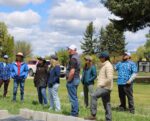
Exploring Montana Agriculture
The SARE Fellows trip to Montana was amazing. I enjoyed seeing the collaborative efforts among the various farms and organizations to share their knowledge, expertise, and resources to help each other thrive while meeting the needs of the community. This experience has shown me how people working together is what truly makes programs sustainable. – […]
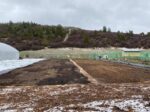
Farmers Test Whether Cardboard Can Keep Bindweed at Bay
Bindweed can be the bane of farmers’ existence. The climbing vine spreads easily by seed and rigorous root system, choking off crops and other plants along the way. “Even when we till in the spring, we spend a huge amount of time hand weeding throughout the season to manage bindweed,” explained Jonah Sloven, who grows […]
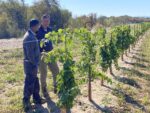
Reasons to Like Wine
Reasons to like wine Number 462: It can be good for New Mexico’s native bees and other pollinators. Even though grapevines are largely self pollinating and don’t need insects like bees or butterflies to produce fruit, vineyards themselves can provide habitat for native pollinators and other insect species, benefiting both the grower and the environment. […]
Video: Testing Cover Crops in New Mexico Vineyards
Watch our newest video describing this Western SARE funded work - Miranda Kersten, IPM Program and Gill Giese, Viticulture of New Mexico State University describe their work promoting putting cover crops in vineyards. The research will demonstrate how to ensure the cover crops successfully grow and flower so that they attract pollinators and provide additional […]
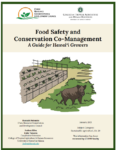
Food Safety and Conservation Co-Management: A Guide for Hawai‘i Growers
A guide for Hawaii farmers interested in improving their efforts towards food safety and improving natural resource conservation, through co-management practices. This document acts as a resource to both learn more about suitable techniques while reviewing pros and cons as shared by local producers, as well as provide template language and guidance towards implementing such […]
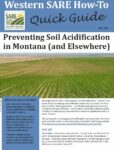
WSARE Quick Guide: Preventing Soil Acidification in Montana (and Elsewhere)
Quick guide to preventing soil acidification in Montana.
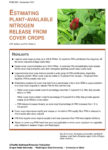
Estimating Plant-Available Nitrogen Release from Cover Crops
This Oregon State University fact sheet explains the basics of plant-available nitrogen (PAN); when to kill cover crops for the maximum PAN benefit; step-by-step instructions on how to perform site-specific measurements to predict PAN from your cover crop; and case studies from the Willamette Valley.
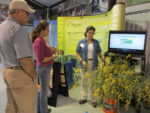
A Sunn Hemp Cover Crop for Soil Health and Nematode Management
These University of Hawaii fact sheets and virtual field day explain how to use sunn hemp as a cover crop to control weeds, nematodes and other pests, add soil nutrients, prevent erosion, and contribute to a more robust and complex community of beneficial nematodes. Available fact sheets include:
Sustainable Agriculture Farming Systems Project
Public concerns regarding pesticide misuse, food safety, water use and contamination, and depletion of non-renewable resources have motivated the reevaluation of some of the practices of conventional agriculture and the exploration of alternative, more sustainable approaches to growing food. In 1988, the Sustainable Agriculture Farming Systems (SAFS) project was established at the University of California’s […]
Mixed Cover Crops
An informational video on the pros and cons of planting mixed cover crops which are often used to replace fallow. Focus is on effects of cover crops on soil quality in semi-arid regions.
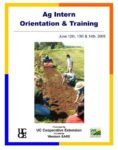
On-Farm Internship Training Binder
The Placer Ag Futures Project was conceived as a response to critical issues affecting local agricultural sustainability. This project was intended to help grow a new crop of agricultural professionals that are trained in sustainable agricultural practices. One part of the Ag Futures Project was the on-farm internship training. The summer internship program consisted of […]
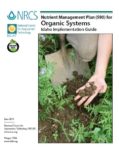
Nutrient Management Plans: Idaho
This is a collaborative project to build the capacity of conservation professionals to assist organic and transitional farmers in planning and implementing conservation practices through the Environmental Quality Incentives Program Organic Initiative. This guide is part of a series of guides created by Oregon Tilth for use by NRCS staff in the Western Region. This document is […]
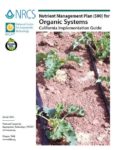
Nutrient Management Plans: California
This is a collaborative project to build the capacity of conservation professionals to assist organic and transitional farmers in planning and implementing conservation practices through the Environmental Quality Incentives Program Organic Initiative. This guide is part of a series of guides created by Oregon Tilth for use by NRCS staff in the Western Region. This document is an instruction […]
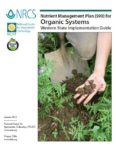
Nutrient Management Plans: Western Region
This document is an instruction guide for creating and implementing a nutrient management plan on certified or transitioning organic lands in the Western Region.
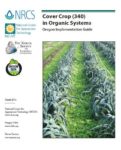
Cover Crops in Organic Systems: Oregon
This document provides an overview of how the USDA Natural Resources Conservation Service NRCS Cover Crop 340 conservation practice can be implemented on organic operations in Oregon.
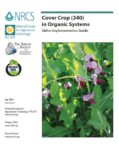
Cover Crops in Organic Systems: Idaho
This document provides an overview of how the USDA Natural Resources Conservation Service NRCS Cover Crop 340 conservation practice can be implemented on organic operations in Idaho.
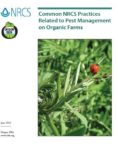
Common NRCS Practices Related to Pest Management on Organic Farms
This document demonstrates how certain NRCS practices that have primary resource protection benefits can also have significant Integrated Pest Management benefits to organic producers.
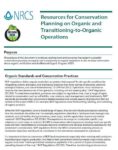
Resources for Conservation Planning on Organic and Transitioning-to-Organic Operations
This document discusses existing tools and resources that support successful conservation planning on organic and transitioning to organic operations.